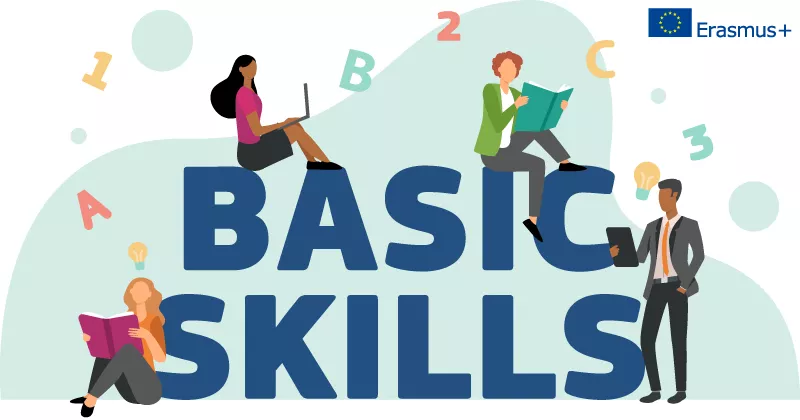EPALE discussion: Basic skills learning provision

Ensuring basic skills for all is a necessary step to enable societies to combat current and future social, health, environmental and economic challenges, and to implement policies effectively in order to support the sustainability of European societies and economies and promote a healthier planet.
Basic skills are transversal. Not only are they relevant to educational policy, but also to employment, health, social and environmental policies. Building cohesive policy measures which support people with basic skills needs is necessary not only to make Upskilling Pathways a success, but also to help build more resilient and inclusive societies.
The online discussion will take place on this page on 16-17 September between 10:00 and 16:00 CET and will be moderated by EPALE Thematic Coordinators of EBSN Graciela Sbertoli (Secretary General of EBSN) and Tamás Harangozó.
The discussion on 16 and 17 September will include the following topics:
- critical literacy
- health literacy
- financial literacy
- numeracy
- basic digital skills for the future.
Please join our online discussion on Basic skills learning provision on 16-17 September 2020!
Comments will be open on 7 September so participants can introduce themselves or post their comments in advance.
Commentaire
Numeracy and Financial Literacy
- Se connecter ou s'inscrire pour poster un commentaire
Critical Literacy
- Se connecter ou s'inscrire pour poster un commentaire
Information literacy
- Se connecter ou s'inscrire pour poster un commentaire
Discussion EBSN
- Se connecter ou s'inscrire pour poster un commentaire
personal responsibility
- Se connecter ou s'inscrire pour poster un commentaire
Thank you!
- Se connecter ou s'inscrire pour poster un commentaire
Promoting personal responsibility
- Se connecter ou s'inscrire pour poster un commentaire
Numeracy has long been neglected!
- Se connecter ou s'inscrire pour poster un commentaire
Re skilling
- Se connecter ou s'inscrire pour poster un commentaire
training illiterates during covid-19
- Se connecter ou s'inscrire pour poster un commentaire
Numeracy, the forgotten skill...
- Se connecter ou s'inscrire pour poster un commentaire
Building on the basics
- Se connecter ou s'inscrire pour poster un commentaire
Coping with digitalization for specific target groups
- Se connecter ou s'inscrire pour poster un commentaire
Message from Norwegian experts
- Se connecter ou s'inscrire pour poster un commentaire
Starting where they are...
- Se connecter ou s'inscrire pour poster un commentaire
...is a good idea
- Se connecter ou s'inscrire pour poster un commentaire
Mainstreaming the good examples...
- Se connecter ou s'inscrire pour poster un commentaire
Teacher ICT skills
- Se connecter ou s'inscrire pour poster un commentaire
Practical issues and vulnerability
- Se connecter ou s'inscrire pour poster un commentaire
I think the way of learning
- Se connecter ou s'inscrire pour poster un commentaire
Teachers' digital skills
- Se connecter ou s'inscrire pour poster un commentaire
EPALE Ressource Kit 1-3
- Se connecter ou s'inscrire pour poster un commentaire
Thank you!
- Se connecter ou s'inscrire pour poster un commentaire
ICT skills
- Se connecter ou s'inscrire pour poster un commentaire
Training illiterates
- Se connecter ou s'inscrire pour poster un commentaire
One-to-one- Meetings?
- Se connecter ou s'inscrire pour poster un commentaire
Good idea...
- Se connecter ou s'inscrire pour poster un commentaire
Whatsapp and other communication apps?
- Se connecter ou s'inscrire pour poster un commentaire
Training illeterates
- Se connecter ou s'inscrire pour poster un commentaire


Financial literacy